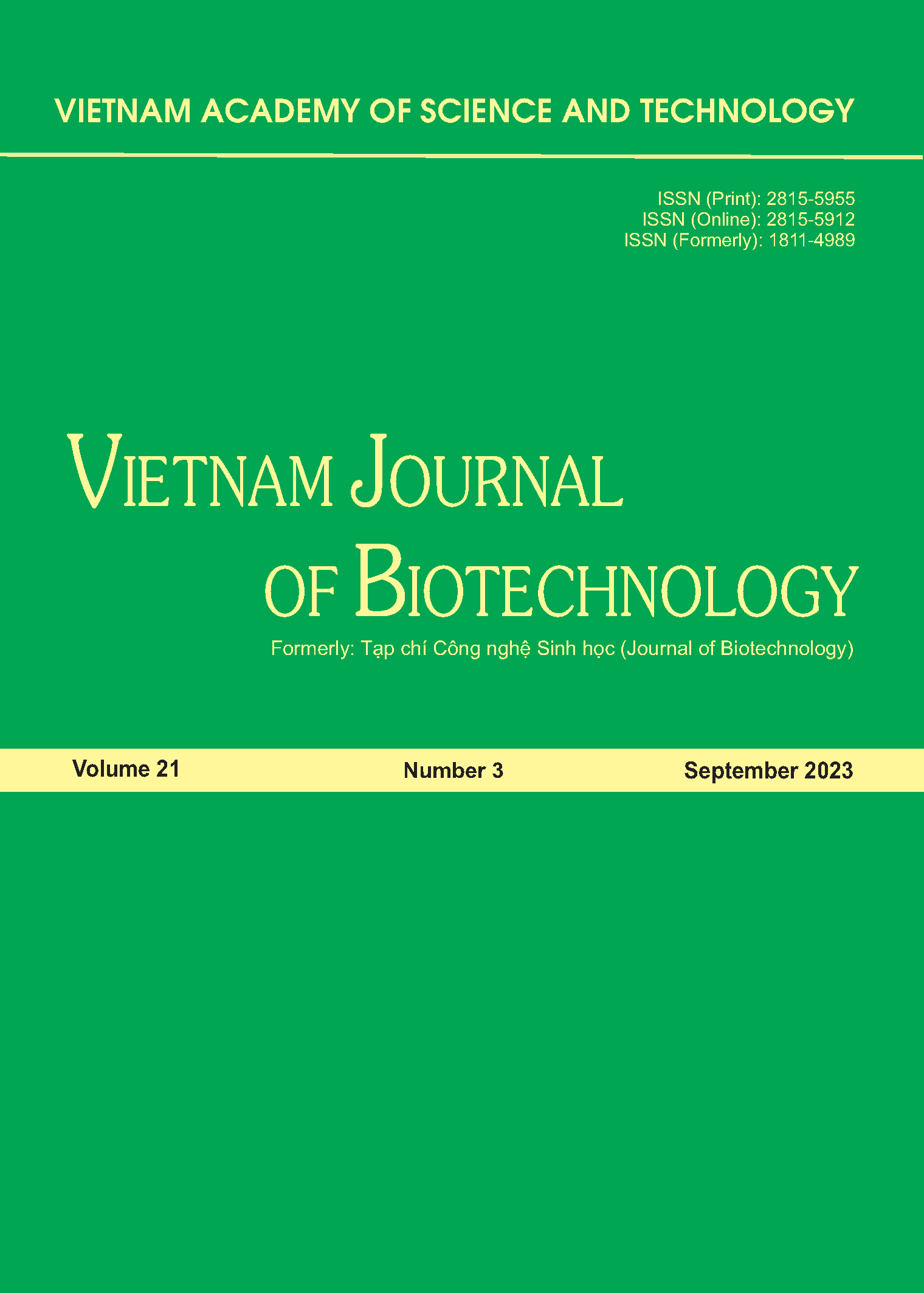Reporting the impact of artemisinin resistance: Molecular surveillance of pfK13 and pfEXO mutations in Plasmodium falciparum in Southern provinces of Vietnam
Author affiliations
DOI:
https://doi.org/10.15625/1811-4989/19451Abstract
Background: Malaria, mainly caused by Plasmodium falciparum, is a major global health concern. In Vietnam, resistance to artemisinin-based combination therapies (ACTs) is rising, jeopardizing malaria control efforts. This study focuses on mutations in the pfK13 and pfEXO genes, particularly the E415G mutation, in Southern Vietnam.
Methods: The study involved 421 patients across two cohorts. The first, with 63 patients from Binh Phuoc and Dak Nong, had uncomplicated P. falciparum malaria and were part of the Therapeutic Efficacy Studies (TES), treated according to WHO guidelines (2009). The second cohort, comprising 358 patients from the Central Highlands, aimed to assess mutation frequency in genes linked to artemisinin resistance. Molecular marker analysis, including Sanger sequencing for pfK13 and ARMS-PCR for E415G in pfEXO, was conducted. The study also examined the association of these mutations with Day 3 parasitemia and treatment outcomes using Dihydroartemisinin-Piperaquine (DHA-PPQ).
Results: Most cases showed mutations in pfK13, linked to delayed parasite clearance and higher treatment failure, indicating pfK13 as a key marker for artemisinin resistance. The E415G mutation in pfEXO was common but not significantly associated with resistance or treatment outcomes, though there was a tendency towards increased treatment failure among these patients. Conclusion: Our study implies the critical role of the C580Y mutation in the pfK13 gene in artemisinin resistance and its impact on the efficacy of ACTs in Vietnam. The findings highlight the necessity for monitoring these mutations as molecular markers for drug resistance and call for the exploration of alternative treatment strategies in the face of evolving antimalarial drug resistance. This study contributes valuable insights to the molecular epidemiology of malaria in Southern provinces in Vietnam and emphasizes the urgency of addressing artemisinin resistance in the global fight against malaria.
Key words: pfK13, E415G , artemisinin resistance, P. falciparum, malaria.







